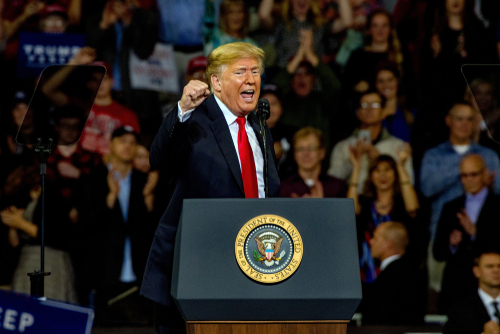
Trump’s plan: Deregulate, boost private investment for growth
Listen To Story Above
John Carney, Breitbart News economics editor, shared his insights on Fox Business Network’s “Kudlow” regarding former President Donald Trump’s approach to economic growth. Carney discussed the Federal Reserve’s decision-making process and its impact on the stock market.
Addressing the upcoming Fed meeting, Carney expressed his belief that a rate cut was inevitable, despite his opinion that it shouldn’t happen. He explained that the Fed had backed itself into a corner with previous decisions, making it difficult to avoid a cut without appearing politically motivated.
Trump will deregulate energy production lowering costs across the board.
There's a lot the oresident can do to alter prices.
pic.twitter.com/fl97vp1wIE— Tim Pool (@Timcast) November 7, 2024
Carney highlighted the stock market’s recent behavior as evidence of a growth expansion. He noted that traditionally, hawkish Fed signals would cause stocks to decline, while dovish signals would lead to increases. However, recent market trends have shown the opposite, with stocks soaring despite expectations of a more hawkish Fed stance.
The economics editor also outlined Trump’s strategy for boosting economic growth, particularly in sectors like microchip production. He suggested that reforming bank regulations and lowering capital requirements for investments in energy and chip production could stimulate private sector spending.
President Trump discusses record on deregulation, plans to cut 10 old regulations for every new one implemented pic.twitter.com/bRvUZVRQPP
— RSBN 🇺🇸 (@RSBNetwork) October 3, 2024
Carney emphasized the importance of deregulation and changing penalty structures to encourage private sector investment. He argued that this approach would effectively re-privatize the economy while reducing government spending, ultimately creating a “recipe for growth”.
In conclusion, Carney presented Trump’s economic vision as one focused on leveraging private sector resources through strategic deregulation and incentives, rather than relying on government spending to drive economic expansion.




